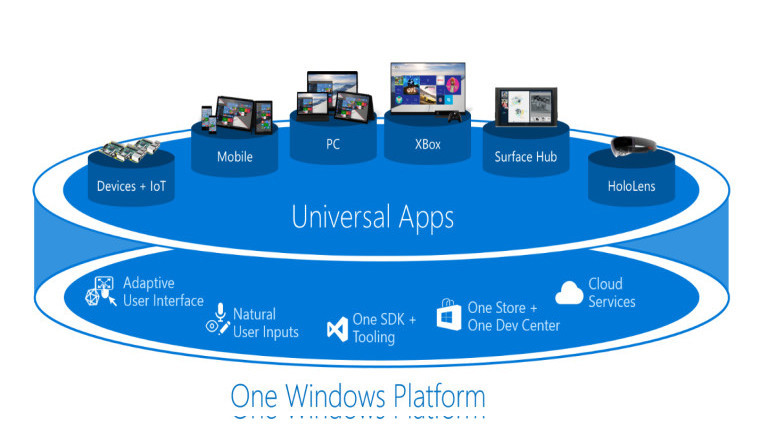
Tim Sweeney, co-founder of Epic Games, has published a column in The Guardian calling out Microsoft's Universal Windows Platform (UWP). Sweeney claims that UWP aims to turn Windows into a closed ecosystem.
His overall point is that Microsoft aims to monopolize app distribution. While not denouncing the Store itself, he denounces the idea that UWP apps cannot be obtained from outside of the Store.
The specific problem here is that Microsoft’s shiny new “Universal Windows Platform” is locked down, and by default it’s impossible to download UWP apps from the websites of publishers and developers, to install them, update them, and conduct commerce in them outside of the Windows Store.
Of course, as he notes in the following paragraph, UWP apps can be obtained outside of the Store. The setting for allowing side-loaded apps is much easier to reach in Windows 10 than it was in Windows 8/8.1. His issue is that it is turned off by default.
One might say that this is the world we live in now. It's similar to Android, where users can side-load apps; however, the setting is turned off by default. On iOS, users have the option to side-load apps now without a developer license, as long as they have a Mac and can get their hands on the app's source code, or jump through some other hoops.
But Sweeney isn't talking about just apps. He's talking about games, where multiple stores already exist, such as Steam, which has over 100 million users.
He goes on to say:
Microsoft’s situation, however, is an embarrassment. Seven months after the launch of Windows Store alongside Windows 10, the place remains devoid of the top third-party games and signature applications that define the PC experience. Where’s Photoshop? Grand Theft Auto V? Fifa 2016? There are some PC ports of what were great mobile games, and some weirder things, such as the Windows 10 port of the Android port of the PC version of Grand Theft Auto from 2004.
But the good PC stuff isn’t there, with the exception of Microsoft’s own software products. Does Microsoft really think that independent PC developers and publishers, who cherish their freedom and their direct customer relationships, are going to sign up for this current UWP fiasco?
In my view, if Microsoft does not commit to opening PC UWP up in the manner described here, then PC UWP can, should, must and will, die as a result of industry backlash. Gamers, developers, publishers simply cannot trust the PC UWP “platform” so long as Microsoft gives evasive, ambiguous and sneaky answers to questions about UWP’s future, as if it’s a PR issue. This isn’t a PR issue, it’s an existential issue for Microsoft, a first-class determinant of Microsoft’s future role in the world.
It's worth noting at this point that the Store launched with Windows 8, redesigned with the UWP platform for Windows 10. It's also worth noting that Project Centennial, Microsoft's bridge for porting Win32 apps to UWP, isn't readily available just yet, which would explain why apps such as Photoshop aren't there.

Kevin Gallo, Microsoft's Corporate Vice President of Windows, issued the following statement to The Guardian:
The Universal Windows Platform is a fully open ecosystem, available to every developer, that can be supported by any store. We continue to make improvements for developers; for example, in the Windows 10 November Update, we enabled people to easily side-load apps by default, with no UX required.
We want to make Windows the best development platform regardless of technologies used, and offer tools to help developers with existing code bases of HTML/JavaScript, .NET and Win32, C+ + and Objective-C bring their code to Windows, and integrate UWP capabilities. With Xamarin, UWP developers can not only reach all Windows 10 devices, but they can now use a large percentage of their C# code to deliver a fully native mobile app experiences for iOS and Android.
As co-founder of Epic Games, Sweeney's words may be seen as a huge blow toward UWP. Sweeney isn't just condemning Microsoft for the way that UWP is implemented, he's openly calling for a rebellion against the platform.
Source: The Guardian / The Guardian


















78 Comments - Add comment